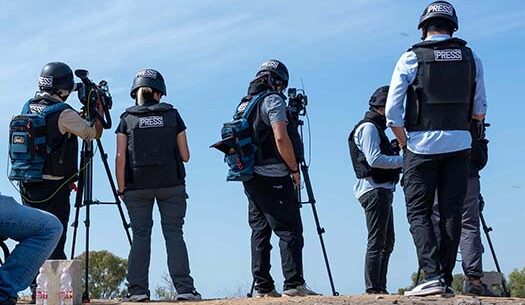Unchecked digital media is weakening the Fourth Estate
Eighteenth century British politician Edmund Burke is credited with coining the term Fourth Estate in reference to the role of the media/press in the power game of politics. It is derived from the European feudal system in which power was exercised by the nobility, the clergy and the lowest rank, the commoners.
The three estates were represented in the British parliament, but Burke, in a speech, acknowledged the reporters’ gallery as the seat of a “Fourth Estate more important far than them all”.
Time has obviously changed the world beyond what Burke would perhaps struggle to comprehend today, but the role of the media has more or less remained the same despite efforts by the powerful to muzzle free speech.
The greatest change that has affected traditional media has been the digitalisation of the space, which has brought with it a devastating blow to the business end.
Whereas it historically required huge capital investment to set up news operations and other aspects of the business, today anyone – even those lacking training in media law and ethics – with no more than a smartphone can spread information at a speed previously unimagined in the news space.
The technological advances have, unfortunately, brought into the space undesirable tendencies and elements that have, to an extent, weakened a power bloc that wielded influence on power. But there are positives that society and media practitioners would do well to uphold. Society will always need the media.
This week, SA had a taste of what the power of good, old traditional media can do, and unfortunately, also the harm that can be caused by what may well turn out to be a fifth estate – social media.
A post by a group of young hosts known as Open Chats Podcast that spoke disparagingly of coloured people broke cover and went viral on TikTok. The presenters made despicably stereotypes of people of mixed race, saying, among other claims, that they practised incest and were crazy.
It was unmitigated hate speech that would find no room in regulated traditional media spaces such as radio, television and the print media, which are kept on a tight leash by regulatory bodies such as the Press Council and the Broadcast Complaints Commission of South Africa.
As a result of the lack of regulation of new age media, offended parties have no option but to head to the courts for recourse, which is often a costly and time-consuming path beyond the reach of ordinary people. Thus, offending podcasts and posts go unchecked and can cause immeasurable damage.
Yet, also competing for attention in the news week was an example of good old journalism at work for the good of society, holding power to account. Investigative reporter Pieter-Louis Myburgh told of and showed the brazen attempt by the suspended CEO of a state entity to bribe him with cash and promises of tenders so that he could stop investigating and writing about her nefarious ways.
It was a caught-on-camera display of what journalism, as observed by Burke, can be and should always be, fighting for the good of society rather than falling to the whims of power to the detriment of all.



